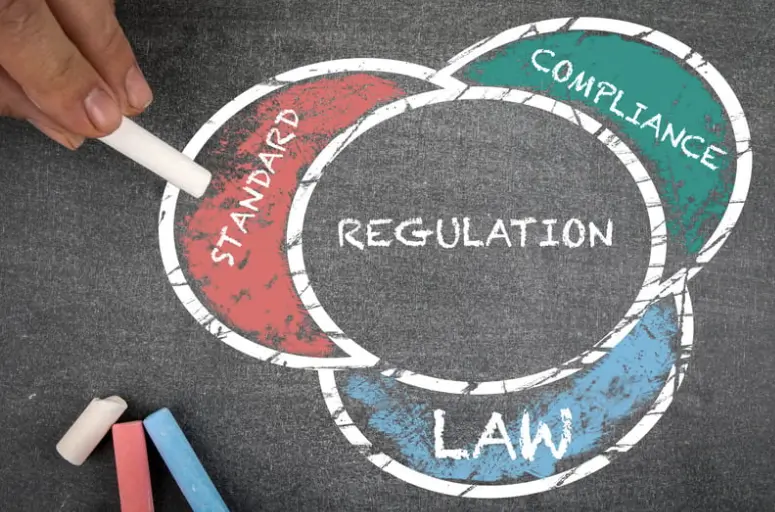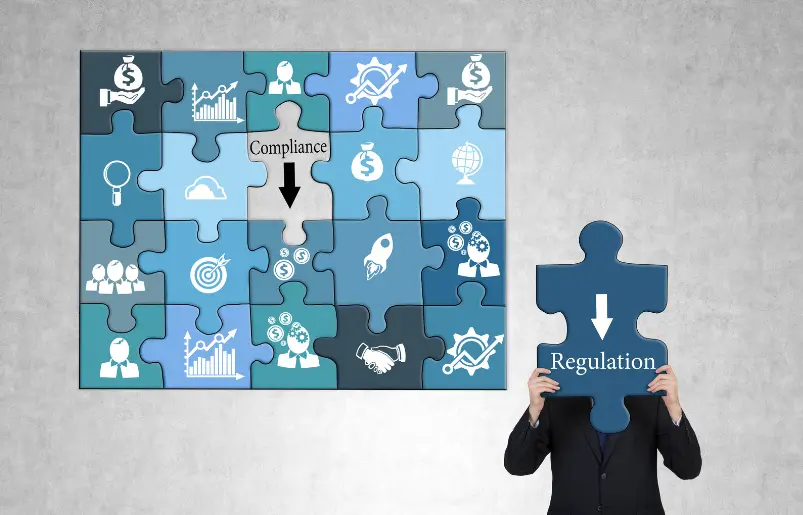“Compliance is the key to prevent the keys being taken away.” — Richelle E. Goodrich
Compliance management software plays a crucial role in helping organizations avoid regulatory fines. This article explores how AI-enhanced compliance management software can mitigate regulatory fines, focusing on the complexities involved, technological solutions, and broader business implications.
Understanding Regulatory Fines
Regulatory fines are penalties imposed by government agencies for violations of laws and regulations. These fines can be substantial, impacting a company’s financial stability and reputation. In 2020 alone, the U.S. Securities and Exchange Commission (SEC) imposed fines totaling over $4.68 billion for various regulatory violations. The challenge lies in the fact that regulations are constantly evolving, making it difficult for organizations to stay compliant.
Ensuring compliance with regulations requires a proactive approach to monitoring, assessing, and managing potential risks. Failure to comply can result in hefty fines, legal repercussions, and damage to a company’s reputation. According to a report by PwC, 77% of CEOs are concerned about over-regulation and its impact on their business.
AI Solutions for Mitigating Regulatory Fines

Artificial Intelligence provides advanced tools to mitigate regulatory fines in compliance management software. One significant advancement is the use of AI for real-time regulatory monitoring. AI algorithms can continuously scan regulatory updates and automatically adjust compliance policies to reflect the latest requirements. This ensures that organizations remain compliant with the most current regulations, reducing the risk of fines. According to IBM, AI-driven regulatory monitoring can reduce compliance costs by up to 30%.
Machine learning models are particularly effective in identifying potential compliance violations before they result in fines. These models analyze historical data and regulatory requirements to predict areas of non-compliance. For instance, AI can detect anomalies in financial transactions that may indicate potential violations of anti-money laundering (AML) regulations. A study by Accenture found that companies using AI for compliance saw a 15% reduction in regulatory fines.
Natural Language Processing (NLP) further enhances compliance management by analyzing unstructured data, such as emails, documents, and legal texts. NLP can extract relevant information and convert it into actionable insights, ensuring that all necessary compliance-related information is accurately captured and analyzed. This comprehensive approach helps organizations identify and address potential compliance issues proactively.
Real-World Applications and Business Benefits

Several compliance management platforms leverage AI to mitigate regulatory fines. For example, the ComplyAdvantage platform uses AI-driven real-time monitoring and machine learning models to detect potential compliance violations. The platform’s advanced algorithms analyze data in real-time, providing organizations with actionable insights and recommendations for compliance management.
Another example is the Refinitiv World-Check platform, which employs AI to enhance regulatory monitoring and compliance processes. Refinitiv uses machine learning models to analyze data and identify potential risks, enabling organizations to implement effective compliance strategies. This AI-driven approach helps organizations stay compliant with regulations and avoid costly fines.
In addition to mitigating regulatory fines, AI-enhanced compliance management software offers several other benefits. These include increased efficiency, reduced compliance costs, and improved decision-making. By automating routine compliance tasks, organizations can free up resources to focus on strategic initiatives. Furthermore, AI-driven insights enable organizations to make informed decisions based on real-time data, enhancing overall compliance and risk management processes.
Conclusion

Mitigating regulatory fines is crucial for maintaining compliance in today’s complex regulatory environment. AI-enhanced compliance management software provides advanced tools to monitor, assess, and manage potential compliance risks. By leveraging AI-driven solutions, organizations can significantly reduce the risk of regulatory fines, allowing compliance officers to focus on higher-value tasks. As the regulatory landscape continues to evolve, AI-driven compliance management software will play an increasingly important role in helping organizations navigate these challenges.
Incorporating AI into compliance management not only mitigates regulatory fines but also offers broader business benefits, including increased efficiency and reduced compliance costs. As such, organizations should consider integrating AI-driven compliance management solutions to stay ahead in an ever-changing regulatory environment.


